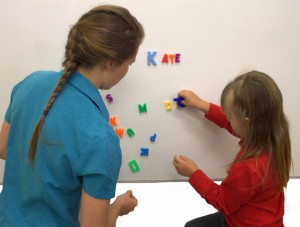 Will your child be ready to start school next year? All children starting school in 2015 in South Australia will begin at the same time, and for the first time some will only be four years old. If your child is starting school here are some things you can do in the next month to make sure they are ready to start and progress with confidence.
Will your child be ready to start school next year? All children starting school in 2015 in South Australia will begin at the same time, and for the first time some will only be four years old. If your child is starting school here are some things you can do in the next month to make sure they are ready to start and progress with confidence.
School is different to preschool and child care. There is more structure and there are more expectations. Formal teaching of reading, writing and maths skills begins. There is more sitting still required, more pencil and paper work and more listening and following instructions. Some children are ready for these changes while others find it harder. Some are reluctant to swap some of their time running, climbing and playing in the sandpit for more time spent on structured "work".
Children with special needs sometimes need extra help to be ready for school, which is why we are running our "transition to school" groups in the January holidays. Over the three weeks leading up to the beginning of school children can get specialised support to practice skills such as working in a group, following a routine and doing basic tasks independently in a supportive small group setting to smooth the transition to regular school. If you would like to find out more about this opportunity click here.
Here are some things you can do to help your child prepare for school:
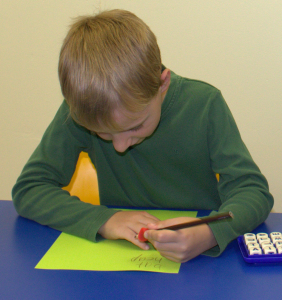 1. Consider your child's posture. Some children can't seem to sit still, while others slump about and can't seem to sit up straight. As parents we think a bit of "reminding" to "sit still, don't slouch" is all that is needed, but often these kids don't sit well because they can't do it. They wriggle and slouch because they have poor core muscle strength. To find some fun ways to build your child's core muscle strength click here.
1. Consider your child's posture. Some children can't seem to sit still, while others slump about and can't seem to sit up straight. As parents we think a bit of "reminding" to "sit still, don't slouch" is all that is needed, but often these kids don't sit well because they can't do it. They wriggle and slouch because they have poor core muscle strength. To find some fun ways to build your child's core muscle strength click here.
2. Develop your child's listening skills. Children need to be able to listen to instructions and remember what to do. There is also lots of listening involved in learning to read and write. As school progresses learning requires more and more listening for longer periods of time. Often children spend lots of time with visual tasks such as watching TV and movies and playing games on tablets and computers. Make sure your child has a chance to practice listening too, by talking together and listening to stories, music, rhymes and songs. For more ideas on developing listening skills click here.
3. Develop your child's speech and language skills. Speech and language skills are vital for success with learning to read and write and for learning across all areas of schooling. Language skills develop rapidly at four years, so if you think your child may be behind, now is the time to check and help them catch up. To find out more about what communication skills children need to be ready for school click here.
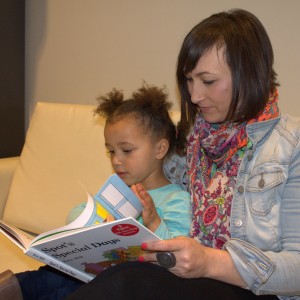 4. Help your child learn about books. The more familiar a child is with the way books work: the way language in books sounds, the way a story is structured, the way the words move from left to right as they tell the story, the easier a chiild will learn to read.To help your child learn about books click here.
4. Help your child learn about books. The more familiar a child is with the way books work: the way language in books sounds, the way a story is structured, the way the words move from left to right as they tell the story, the easier a chiild will learn to read.To help your child learn about books click here.
5. Get your child ready to learn reading and writing. There are lots of things parents can do at home, before kids start school, to help them to be ready to read and write, such as playing games with words, letters and sounds. For ideas about how to develop your child's readiness for literacy learning click here.
6. Build your child's fine motor skills. School involves lots of drawing and writing as well as skills like using scissors and paint brushes. Some children avoid fine motor actvities and so are not as ready for these tasks as others. Providing your child with the materials, opportunity and encouragement to practice these skills can really help. For more about fine motor skills and how to develop them click here.
7. Develop your child's self care skills. Can your child take themselves to the toilet, wash their hands, put their jacket on and off, open their lunch box and put their shoes on by themselves? With less adults and a larger group of children kids need to be more independant at school and be able to manage basic self care tasks with confidence. To find out more about helping develop self care activities click here.
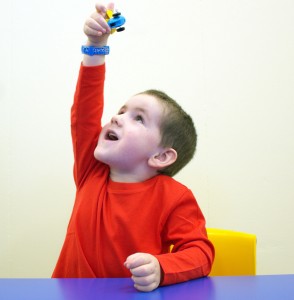 8. Develop your child's confidence. When kids are confident they take risks with learning, try harder and progress more quickly. The way adults interact with kids has a big influence on how confident kids become. To find out how to develop your child's self confidence click here.
8. Develop your child's confidence. When kids are confident they take risks with learning, try harder and progress more quickly. The way adults interact with kids has a big influence on how confident kids become. To find out how to develop your child's self confidence click here.
9. Help your child learn to manage their emotions. Kids need to be able to respond appropriately to feelings of sadness, fear and anger as well as to know when a feeling is small enough to manage themselves and when a feeling is so big they should ask for help from an adult. For ideas and activities to help your child to learn to manage their emotions click here.
9. Provide a regular routine. Routines in the morning and at night help kids arrive at school calm, well rested and ready to learn. For some families this comes naturally but for others it is more of a challenge. If you need help to develop a consistent routine to help your child be ready for regular school attendance click here.
10. Seek help if you need it. If you are concerned about your child's development in any of the above areas, don't wait to seek help. With six months to go before beginning school there is lots that can be done with the right advice and support. To find out how Talking Matters can help your child click here. If you are reading this in another area look for a speech pathologist or occupational therapist who can help you with assessing your child's skills and finding the areas where they need a bit of extra support. Some help now can make a big difference in the future.
Download our free Starting School Activity Pack from the front page of our website to find more things you can do to help your child begin school with confidence.
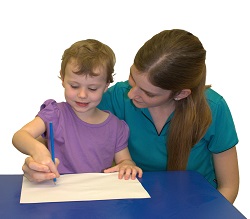 Talking Matters provides speech pathology, occupational therapy and psychology services to kids of all ages in Adelaide, South Australia. To find out more about our team and what we do browse our website and see how we can help your family.
Talking Matters provides speech pathology, occupational therapy and psychology services to kids of all ages in Adelaide, South Australia. To find out more about our team and what we do browse our website and see how we can help your family.
To give your child a smooth start to school with our transition to school group program click here.
There is also more information on our Facebook page, Twitter, or Pinterest.
Jo Brenecki
Speech Pathologist
Related Blog Posts
If you liked this post you may also like:
Tips for handwriting
Superpowers at home
Questions for school
Starting sound awareness



